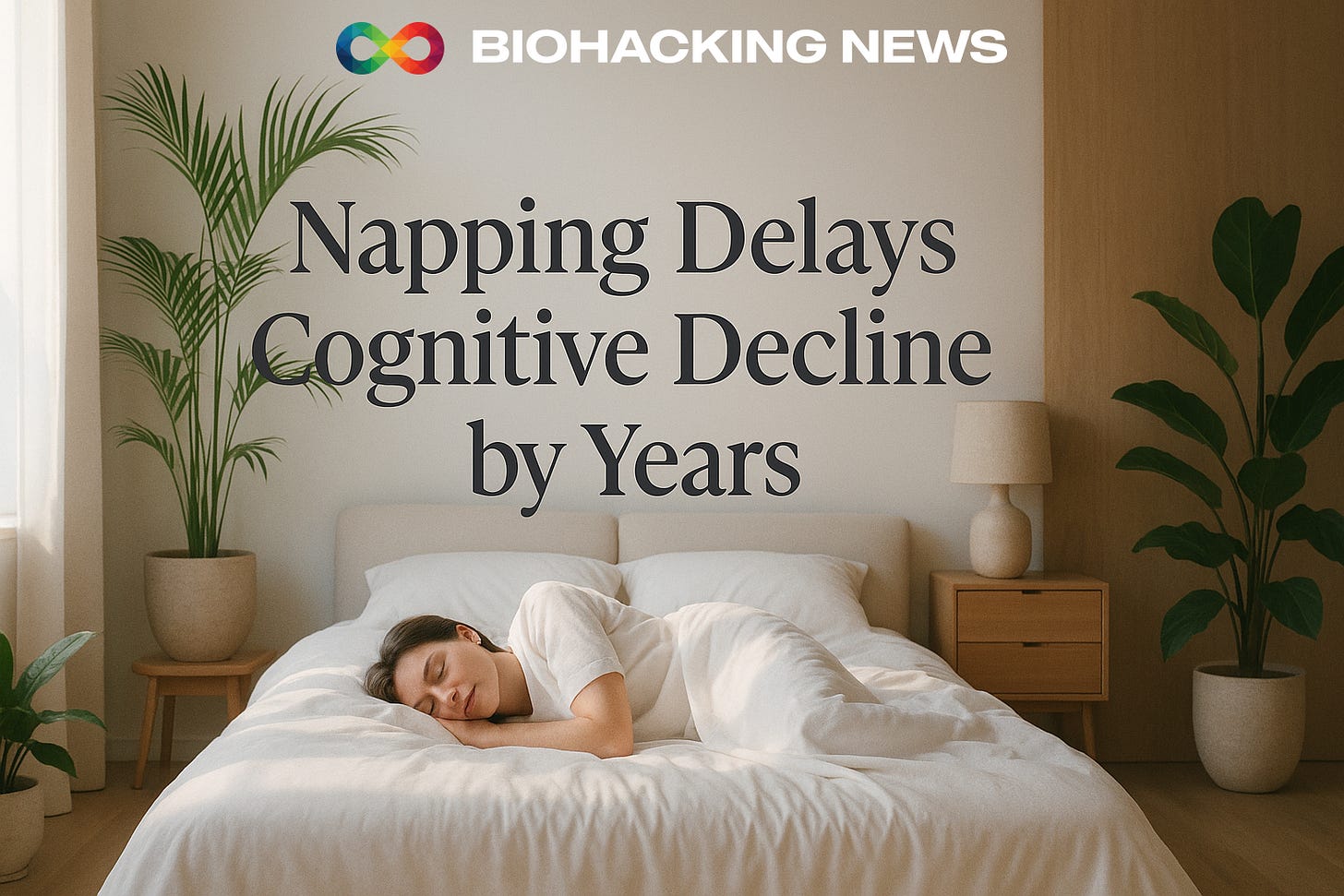Napping Could Delay Brain Aging by Up to 6.5 Years, Study Finds
Study reveals a powerful link between short daytime naps and significantly slower brain aging, with benefits measured in actual years.
Most people see napping as indulgent. New genetic research suggests it’s one of the most effective and overlooked strategies for long-term brain health.
🧠 Does Napping Really Protect Your Brain?
Yes, according to a 2023 study from the University of London, daytime napping is directly linked to larger brain volume, a key marker of cognitive resilience.
Using a method called Mendelian randomization, scientists showed that people who are genetically predisposed to nap have structurally younger brains, equivalent to 2.6 to 6.5 years less aging.
Why it matters:
Brain shrinkage is a hallmark of aging and neurodegeneration
Larger brain volume = better memory, executive function, and long-term cognitive health
⏱ What’s the Ideal Nap Protocol?
Based on both the study and real-world applications, here’s what works:
Duration: 20–30 minutes
Longer naps may disrupt nighttime sleep or cause grogginess.Timing: 6–8 hours after waking
Aligns with the body’s natural circadian dip in alertness.Optional Upgrade: Caffeine before nap
Drink 150–200mg of coffee before lying down. You’ll wake up sharper as the caffeine kicks in.
📊 How Significant Is This Brain Size Difference?
The researchers didn’t just observe correlation, they measured causal impact using genetic instruments.
Their estimate: habitual nappers had brains that appeared biologically 2.6 to 6.5 years younger than non-nappers.
This isn’t just about how you feel after a nap, it’s about actual brain preservation over time.
❗ Common Myths About Napping (And What the Science Says)
Myth 1: Napping makes you lazy
Fact: It boosts performance, memory consolidation, and neurological protection.
Myth 2: Napping ruins nighttime sleep
Fact: Short naps (under 30 mins) taken early in the day don’t interfere with circadian sleep rhythms.
Myth 3: Only poor sleepers nap
Fact: Even well-rested individuals benefit cognitively from brief daytime rest.
✅ Key Takeaways You Can Use Today
A short daily nap may delay cognitive aging by years
Genetic research supports its long-term neurological benefits
Optimized naps are brief, early afternoon, and caffeine-enhanced
The brain benefits aren’t just functional, they’re structural
📣 Want More Science-Backed Longevity Tools?
🧬 Subscribe to Biohacking News for weekly, research-based tips to optimize brain health, extend healthspan, and live younger longer.
→ Share this post if someone you love still skips naps.



